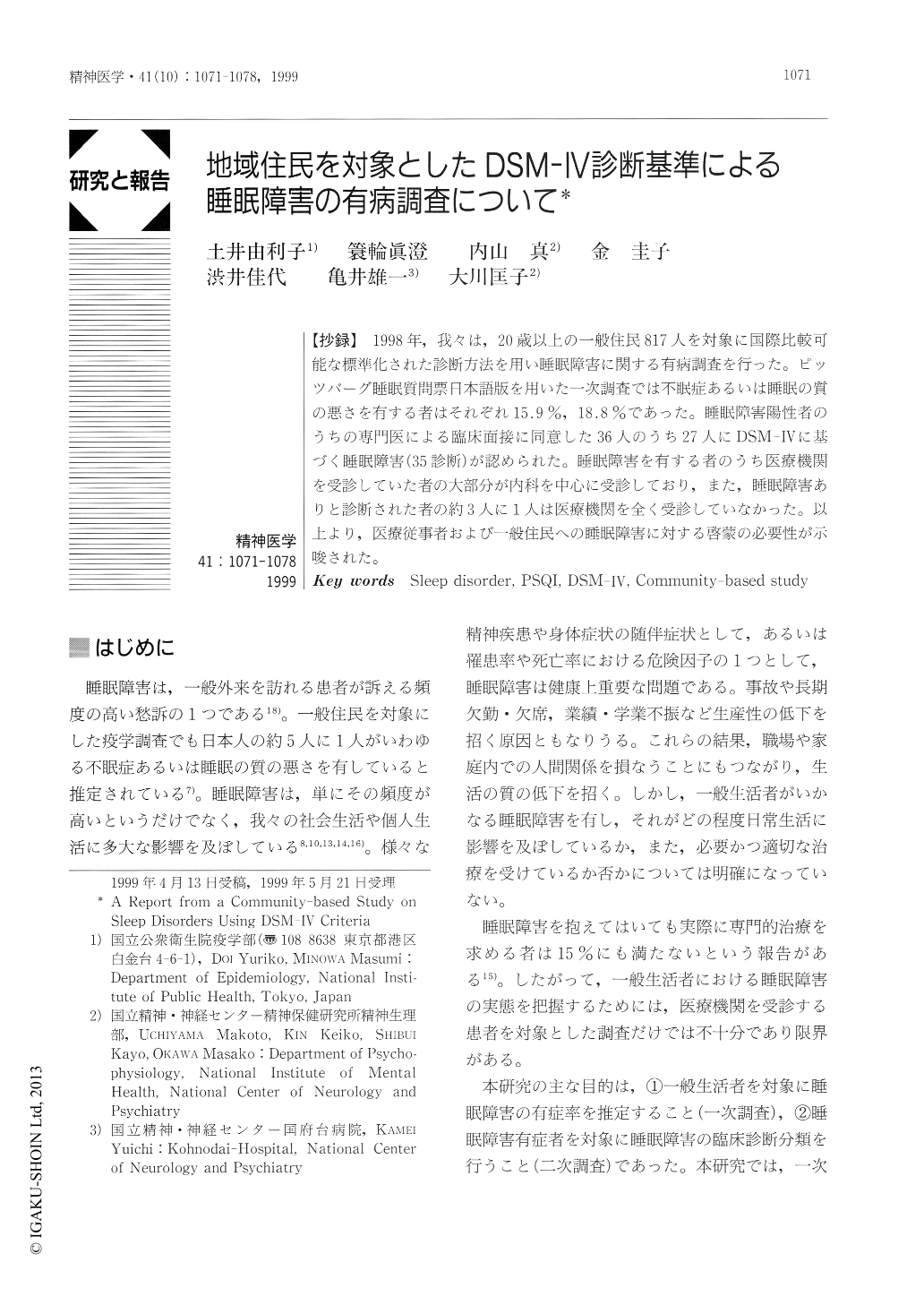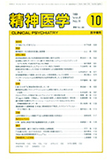Japanese
English
- 有料閲覧
- Abstract 文献概要
- 1ページ目 Look Inside
- サイト内被引用 Cited by
【抄録】 1998年,我々は,20歳以上の一般住民817人を対象に国際比較可能な標準化された診断方法を用い睡眠障害に関する有病調査を行った。ピッツバーグ睡眠質問票日本語版を用いた一次調査では不眠症あるいは睡眠の質の悪さを有する者はそれぞれ15.9%,18.8%であった。睡眠障害陽性者のうちの専門医による臨床面接に同意した36人のうち27人にDSM-IVに基づく睡眠障害(35診断)が認められた。睡眠障害を有する者のうち医療機関を受診していた者の大部分が内科を中心に受診しており,また,睡眠障害ありと診断された者の約3人に1人は医療機関を全く受診していなかった。以上より,医療従事者および一般住民への睡眠障害に対する啓蒙の必要性が示唆された。
We conducted, in 1998, a community-based study on sleep disorders of 817 Japanese adults aged 20 years and older. Using the Pittsburgh Sleep Quality Index, the respective prevalence rates of insomnia and perceived poor quality of sleep were 15.9% and 18.8%. Among 36 who were identified as having sleep problems by the PSQI and who agreed to participate in clinical interviews by psychiatrists, 27 had 35 sleep disorders based on DSM-IV criteria. They were diagnosedas sleep disorders due to their general medical condition (7), dyssomnia not otherwise specified (7), primary insomnia (6), breathing-related sleep disorders (6), sleep disorders related to other mental disorders (4), parasomnia not otherwise specified (3), circadian rhythm sleep disorders (1) and nightmare disorder (1). About 30% of them did not seek any professional help. The rest received medication from primary physicians. Our results suggest that a variety of sleep disorders are quite prevalent among Japanese adults, and many insomnia sufferers don't receive appropriate medical or psychosocial help. To improve the treatment of these common and often chronic conditions, education concerning sleep disorders is needed not only for patients but also for primary physicians.

Copyright © 1999, Igaku-Shoin Ltd. All rights reserved.


